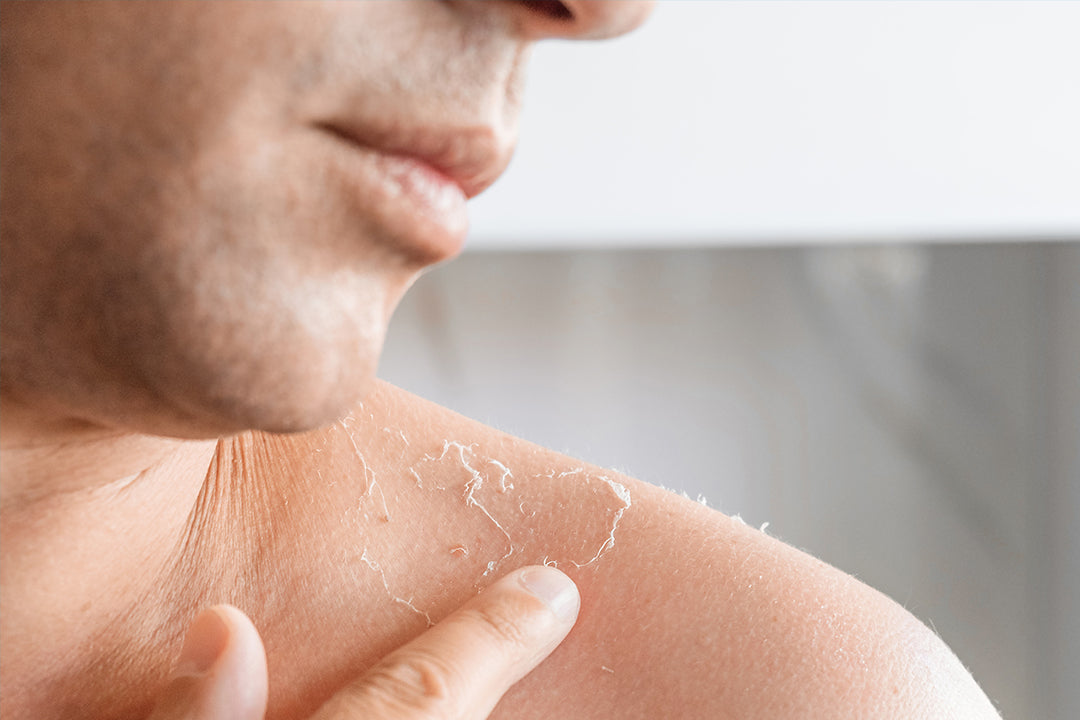Are you experiencing skin peeling and wondering why it's happening? You're not alone. Skin peeling is a common condition that can be caused by various factors. In this blog post, we will explore the causes, symptoms, and treatment options for skin peeling. Whether you're dealing with peeling skin on your fingertips or experiencing it on other parts of your body, this article will provide you with valuable insights.
Understanding Skin Peeling
Before we dive into the causes of skin peeling, let's first understand what it is. Skin peeling, also known as exfoliation, is the shedding of the outermost layer of the skin. This natural process helps to remove dead skin cells and reveal the new, healthy skin underneath.
Causes of Skin Peeling
- Dry skin: One of the most common causes of skin peeling is dry skin. When your skin becomes excessively dry, it can lead to flaking and peeling.
- Sunburn: Overexposure to the sun's harmful UV rays can damage the skin and cause it to peel. Sunburns often result in redness, pain, and peeling.
-
Dermatitis:
- Contact Dermatitis occurs when the skin comes into contact with an irritant or an allergen. It can cause itching, redness, and peeling.
- Atopic dermatitis, also known as eczema, is a common skin condition characterized by dry, itchy, and inflamed skin. It can cause peeling in certain areas.
- Seborrheic dermatitis is another common skin condition that primarily affects the scalp, but it can also occur on other parts of the body, causing redness, itching, and skin peeling.
- Psoriasis: Psoriasis is a chronic autoimmune disease that causes the skin cells to multiply rapidly. This rapid growth leads to the formation of thick, scaly patches that can peel. Cutaneous lupus erythematosus is another such disease that may lead to skin peeling
- Fungal infection: Certain fungal infections, such as athlete's foot or ringworm, can lead to skin peeling. These infections thrive in warm, moist environments.
- Skin cancer: In some cases, skin peeling can be a sign of skin cancer. If you notice any changes in your skin, such as new moles or lesions, it's important to see a doctor for further evaluation.
Symptoms of Skin Peeling
The symptoms of skin peeling can vary depending on the underlying cause. Common symptoms include:
- Flaking and peeling skin
- Redness and inflammation
- Itching and discomfort
- Dryness and roughness
If you're experiencing these symptoms, it's essential to identify the cause of your skin peeling and seek appropriate treatment.
Treatment for Skin Peeling
The treatment for skin peeling depends on the underlying cause. Here are some common treatment options:
- Moisturize: Keeping your skin well-hydrated can help prevent dryness and reduce peeling. Use a moisturizer that suits your skin type.
- Protect from the sun: Apply sunscreen with a high SPF to protect your skin from the sun's harmful rays. Wear protective clothing and seek shade when necessary.
- Avoid irritants: If you have contact dermatitis, identify and avoid the irritants or allergens that trigger your symptoms.
- Topical medications: In some cases, your doctor may prescribe topical medications, such as corticosteroids or antifungal creams, to treat the underlying condition.
- Medical procedures: For severe cases of skin peeling, medical procedures like chemical peels or laser resurfacing may be recommended.
When to See a Doctor
While mild cases of skin peeling can often be managed at home, there are situations where it's important to seek medical attention. You should see a doctor if:
- Your symptoms worsen or don't improve with home remedies
- You have signs of infection, such as pus or swelling
- You develop a fever or other systemic symptoms
- You have a family history of skin cancer
It's always better to be safe than sorry when it comes to your health. If you're unsure whether you should see a doctor, it's best to consult a healthcare professional.
Takeaways
Skin peeling can be a bothersome condition, but understanding its causes and symptoms can help you manage it effectively. Whether you're dealing with peeling skin on your fingertips or elsewhere on your body, this article has provided you with valuable insights into the possible causes and treatment options.
Remember to moisturize regularly, protect your skin from the sun, and seek medical attention if your symptoms worsen or persist. By taking care of your skin and addressing the underlying causes, you can maintain healthy, radiant skin.









